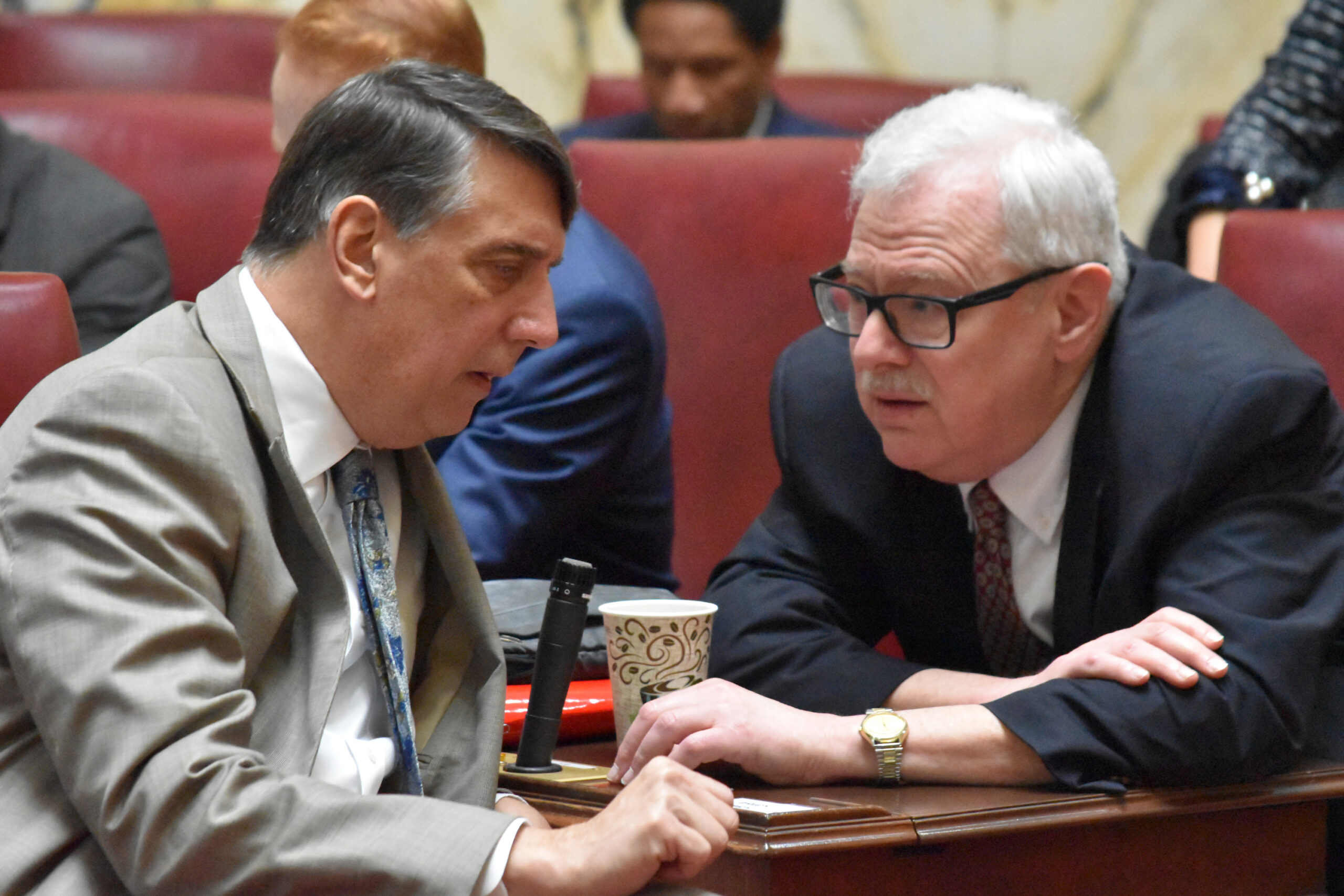Legislative budget negotiations will begin soon after Senate passes $62.6 billion budget plan

Maryland House and Senate lawmakers will head to the negotiating table soon, after senators gave final approval Thursday to the chamber’s $62.6 billion budget plan.
The budget bill, along with the Budget Reconciliation and Financing Act of 2023, passed the chamber unanimously.
The Senate made 38 amendments to the House version of the budget.
Senate Budget & Taxation Chair Guy Guzzone (D-Howard) said the plan achieves the Senate’s “goal of finding fiscally sound ways to fund the priorities and needs of our state.”
In the first year of the General Assembly’s expanded budgetary authority — legislators can now add funding to parts of the budget after a 2020 constitutional amendment — Guzzone said their actions “responsibly realign funds to invest in infrastructure that supports us and the programs and services that support our most vulnerable residents and set our state up for a bright future.”
Budget negotiators are likely to start meeting early next week to iron out differences between the House and Senate spending plans.
The biggest distinctions between the spending plans are in education funding.
In January, Gov. Wes Moore (D) included a $500 million payment to the Blueprint for Maryland’s Future fund on top of the required programmatic funding for the program, as well as $500 million for unspecified transportation projects.
The House version of the budget bill would shift $400 million from the transportation column and direct it to the Blueprint, for a $900 million influx to education reform.
The Senate shifted that split, directing $800 million to future education costs and retaining an additional $100 million for transportation.
Senate Republicans introduced an amendment Wednesday that would have directed $300 million of the funding for the Blueprint for retiree tax relief, but that failed 13-33. Guzzone said the long-term effect of such an amendment could not be know and it was important to support the state’s long-term education reform plan, which will add billions in annual public school funding after a 10-year implementation.
The Senate spending plan also would continue investing in the Broadening Options and Opportunities for Students Today, or BOOST, program, which provides funding for low-income students to attend private schools.
While the House budget plan would have phased out BOOST, the Senate would add a $2 million cut by Moore to the $10 million program back into the budget.
A second attempted floor amendment also failed Wednesday, 14-33. That amendment would have curtailed state reimbursement to some medical care providers for abortion procedures.
Senate initiatives added to the budget include $35 million to support the state’s medical trauma system, $5 million to reduce waitlists for state behavioral and community health programs and $2.25 million to expand free school meal programs.
The Senate plan would retain about $3 billion in state cash reserves.




 Creative Commons Attribution
Creative Commons Attribution